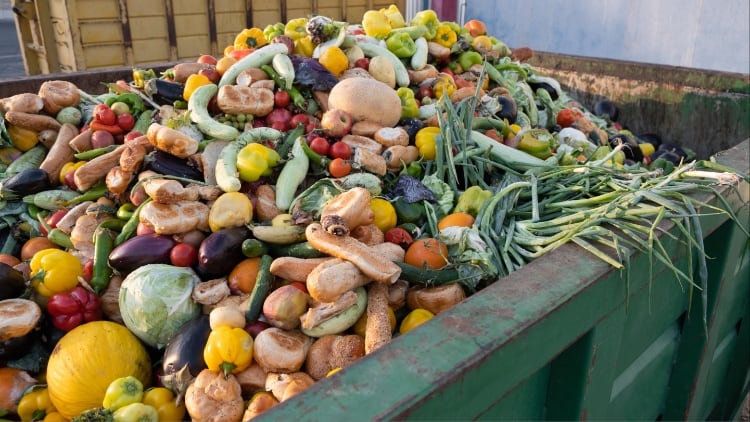According to insight from Forbes, businesses across the globe are struggling like never before. Alongside the economic and political pressures of rising inflation, the cost of living crisis, soaring taxes and supply chain insecurity driven by global conflict, labour shortages, energy price volatility and the continued impacts of Covid are all taking their toll.
What’s more, micro pressures are rising in parallel too. Customers are pushing for differentiation and innovation, with brand loyalty scores falling at record rates. Elsewhere, deadlines are looming when it comes to decarbonising operations and accelerating progress towards net-zero.
As a result, costs are soaring and profits are dwindling. So much so, in fact, that insight from consultancy firm PWC suggests that streamlining efficiencies must be seen as a major corporate priority for 2024.
But while efficiencies often come in the form of energy reduction, staff restructuring and supplier audits, many businesses are failing to recognise a major overhead that often flies under the radar – food waste. While often considered a necessarily evil for businesses operating within the food supply chain, disposal costs are an area that can, and should, be a quick win priority.
Tackling waste, unlocking opportunity
Every year in the UK alone, more than 10 million tonnes of food is wasted, equating to roughly one quarter of all food purchased. While the majority comes from households, some 40% is generated across the food supply chain – from agriculture and hospitality to food service, manufacture and retail.
With disposal via general waste afflicted by soaring tax charges (set to hit £104 per tonne by April), landfilling food waste is becoming an increasingly, and unnecessarily, high cost to businesses. Considering the pressures faced elsewhere, streamlining food waste therefore has the opportunity to deliver widespread benefit.
To add insult to injury, not only are the financial impacts of landfilling food a cause for concern, but so too are the environmental consequences. After all, rotting food waste releases greenhouse gas (GHG) emissions considered 21 times more damaging to the ozone layer than carbon dioxide. As a result, the UN Environment Programme now considers food waste one of the world’s biggest humanitarian concerns.
With food waste an operational hazard for almost every business operating across the food supply chain, finding a sustainable solution is key. Fortunately, the growing popularity of food waste recycling shows a light at the end of the tunnel.
A sustainable solution: turning waste into bioenergy and fertilizer
When tackling food waste, it’s important to consider both the avoidable and unavoidable fractions. Avoidable waste refers to food items that could have been consumed if better managed. Examples include expired food, stale food and blemished fruits and vegetables. Unavoidable food waste, on the other hand (such as shells, bones and spoiled produce), is simply unsuitable for human consumption.
Reducing avoidable food waste relies on improving processes, reducing inefficiencies and changing behaviours. It also requires better use of the food waste hierarchy to prioritise the most effective solutions. When it comes to unavoidable food waste, however, there are few options. At ReFood, we believe that this waste has value and shouldn’t be thrown away.
Instead, we work with businesses nationwide, collecting 480,000 tonnes of food waste every year. We recycle this waste at our three state-of-the-art anaerobic digestion (AD) facilities in Widnes, Doncaster and Dagenham, capturing the methane released during natural degradation and turning it into clean, green renewable energy – both electricity and gas. Even the residual digestate left at the end of the process can be repurposed as a sustainable liquid biofertiliser and utilised by local farmers to aid crop growth.
The food waste recycling process is completely circular, with material diverted from landfill and used to grow the crops of tomorrow. What’s more, it’s a sustainable and reliable source of renewable energy – increasingly important in a world challenged by energy supply security and targeting decarbonisation ambitions.
But alongside the environmental and circular economy benefits of food waste recycling, the financial benefits are equally as important. After all, with every tonne of general waste stung by landfill tax charges, companies can avoid this costly spend and realise savings of close to 50% on their waste management bills.
Supporting the circular economy
The food waste recycling process is zero waste and provides real advantages for companies seeking to adopt more circular business models. On the one hand, the biomethane produced contributes towards government energy targets and reduces reliance on international gas imports. On the other, recycling food offsets reliance on landfill, therefore reducing carbon dioxide production and preventing GHGs from being released into the atmosphere.
Presenting a huge opportunity for bringing the circular economy into modern business practices, recycling food waste into bioenergy should be right up there alongside energy procurement, fleet electrification, and the reduction of supply chain emissions as a critical priority for businesses looking for sustainable solutions to slash overheads and reduce their carbon footprint.
In other news, a legal claim has been launched against Avara Foods alleging that the poultry supplier is polluting the River Wye and its surrounding area.




